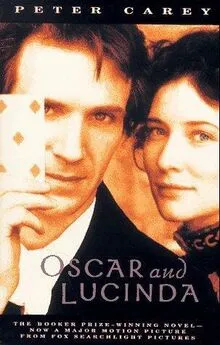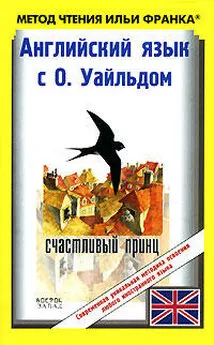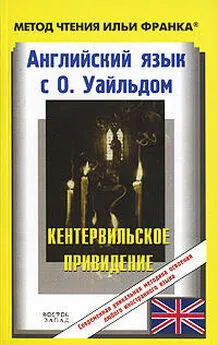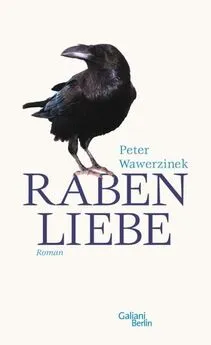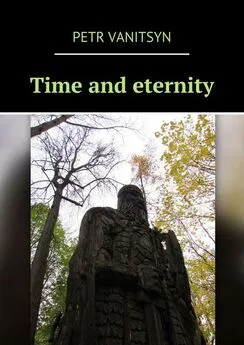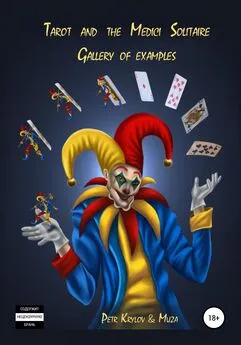Peter Carey - Oscar and Lucinda
- Название:Oscar and Lucinda
- Автор:
- Жанр:
- Издательство:Vintage Books
- Год:1988
- Город:New York
- ISBN:0-679-77750-4
- Рейтинг:
- Избранное:Добавить в избранное
-
Отзывы:
-
Ваша оценка:
Peter Carey - Oscar and Lucinda краткое содержание
The Booker Prize-winning novel-now a major motion picture from Fox Searchlight Pictures.
This sweeping, irrepressibly inventive novel, is a romance, but a romance of the sort that could only take place in nineteenth-century Australia. For only on that sprawling continent-a haven for misfits of both the animal and human kingdoms-could a nervous Anglican minister who gambles on the instructions of the Divine become allied with a teenaged heiress who buys a glassworks to help liberate her sex. And only the prodigious imagination of Peter Carey could implicate Oscar and Lucinda in a narrative of love and commerce, religion and colonialism, that culminates in a half-mad expedition to transport a glass church across the Outback.
Oscar and Lucinda - читать онлайн бесплатно полную версию (весь текст целиком)
Интервал:
Закладка:
The jam jars were still rucked in their hiding places. She would have counted them, but she did not wish to be seen, so she opened her case and rolled up each jar in a different garment, stuffing a sleeve down a glass throat to stop spillage and noise. Then she walked back out into the sunshine and allowed herself to be persuaded into the jinker.
On 7 May 1859, the five farms at Mitchell's Creek were sold at auction. On 10 May Lucinda Leplastrier turned eighteen.
On Ascension Day she travelled on Mr Sol Myer's steamer down to Sydney. She would also blame herself for this "flight." She often imagined her life would have been happier had she stayed, perhaps bought part of Mitchell's Creek herself, but the older Lucinda forgot that the younger one had an itchy impatience to grasp what her mother
83
Oscarandlttcinda
that he misunderstood him. He neard a "two" instead of a "one." In any case, when he banged his cane onthe "sported" door he was banging at the wrong address. Wardley-Fish banged hard. He won^d what illicit activity might make West lock up like this, tie bange]fce papier-mâche until the doors take on a slightly melted look, like chocolate left above a fireplace. He heard the door being fiddled w^ an
The Odd Bod peered around fris only partiy Opened oak, blinking, nervously. Wardley-Fish understood the reason for ^s nervousness. The Odd Bod had had water poured into his b«^ Bother occasion his room had been made the venue for a rat hunt. The rats were delivered by someone knocking just as Ian Vv*ardley.Fish had knocked. These rats were perhaps in a bird cage, perhaps in a basket, most likely in a sack. They were dumped on the floor, relea^ and then attacked by men with hockey sticks. The Odd Bod, mednwhile, had stood on his bed, his lips moving soundlessly. Wardley-Fish apologized. He had n0 wjsh to cause the poor little beggar any more fright. It was West r,e wanted. He tried to explain this, but the Odd Bod was stepping bacl(mvitjng him in, althoughit was quite obvious-he was still «>nfusecj ancj nervc,us. Wardley-Fish had never seen an Onel room ^ ^,3^ Chough it was not just cold empty space between objects that defined its worrying personality. It was like stepping into a cell in, say, Spam _ some country you had never visited. There was nothing famili^ nothing one would expect at home, no port on the mantel, no rugs, HO paintings of game or romantic girls soaring high on swings. There was a bed, a very plain desk, a hard ash chair with a straight back. It was schoianv/ and yet not-there were few books on the shelves. It was neat, but there were what one could only call "heaps" of things scattered here and there-papers, clothingThere was a brown felt-covered board leaning against one wall on which the Odd Bod had tacked charts: all m;»nner of scholarly information drawn into small square boxes. The bo*es were most precjse The information inside the boxes was smudged an(j gpjde^ the work not of *n academician but of a small and muddy beetle. On the mantel was displayed a wooden tray, tilted on an angle> ^ a display of fishing tactf6
«A
The Odd Bod
in a high-street shop. Wardley-Fish had heard about this tray. It was famous as far as Trinity. The tray contained his mother's buttons.
There was no fire in the grate. The remains of a very bleak breakfast was on the tray. WardleyFish was shocked. The Odd Bod looked so frail and white, so obliging and yet so lonely. He wished to be kind to him in some way but could not think now.
"I say, Odd Bod, do you like a flutter?" And then, having offered this, he regretted it. He would not feel comfortable in the Odd Bod's company. He would not like it to be known. Oscar was trying to provide his visitor with a chair. He heard "flutter" and thought it pertained to heart, to nerves, to upset, and indeed the banging on the oak had frightened him and he had only opened it to save having it Tom down once more. And yet, meeting the ale-breathing WardleyFish, he was only half-cowed. Wardley-Fish belonged to a fast set, none of whom were very bright. Oscar, who had not until now been academically distinguished, still judged himself to be above this lot of wealthy gentlemen. He was fearful, superior, and also touched by the large man's awkward kindness. He pushed the chair towards his visitor. "What flutter, Fish? If it is slang I am not yet familiar with it."
Wardley-Fish sat, then saw his host had nowhere to sit, and so stood himself. It was ludicrous to imagine the Odd Bod would have a flutter. He had no cash to flutter with. Further, he was of a very literal and Evangelical persuasion. Evangelicals were always most upset by gambling. Wardley-Fish edged towards the door.
But Oscar was so delighted to see his visitor's obvious good intentions that he was determined to make a friend of him. This was an exercise of pure will. It did not feel natural or easy.
"Please, Fish, explain to me."
Wardley-Fish stood still. "It is all connected with the racetrack," he said reluctantly. Oscar nodded.
"You know what a racetrack is?"
Oscar perched on the edge of his bed so that Wardley-Fish might be persuaded to sit. (This succeeded.) "A track," he said, "where one conducts athletic contests." e *"en smiled, or produced a bud of a smile, a tightly compressed ^ginning. Fish found this oddly attractive.
^ is for horses," Wardley-Fish said.
ancy," saj
Oscar and Lucinda
"The contests are held between horses. Odd Bod, you really do know, don't you?" It was the smile that made Wardley-Fish imagine he might be having his leg pulled, but the smile was produced by nothing more than the pleasure of an unexpected visitor. (He wondered if he should light a fire irrespective of expense.)
"And which part of this race involves the flutter?"
There was too much to be explained. The gulf was too great. Time was getting on. If West was not here, he must be upstairs. If he was asleep, he would take time to wake up. Wardley-Fish was overcome with impatience. It made him sound gruff: "A wager, a bet, a flutter." He stood up. Then he felt he had been rude. He had not intended to bark like that. "You know what a bet is," he said, this time more softly than he had meant.
"Actually," said Oscar Hopkins, "no, I don't."
Wardley-Fish saw that this could go on all day. He did not wish to hurt the chap's feelings (he had a tender face and seemed as though he would be easily hurt) but neither did he wish to miss his day at the track. "You give money to chaps and if the horse you like is the one that wins, why then, they give you double your money back, or treble, or whatever."
"Bless me."
"Do not mock me."
"No, Fish, no. I swear to you. It is new to me. I thought you would have known, for what is called my 'ignorance' seems to be a popular topic in this college. I was raised very much out of the way, in a little village in Devon. We were concerned with botany and marine biology." ("And buttons," thought Wardley-Fish, but kept his face straight.)
"We did not go in for fluttering, but I must say I rather like the sound of it." All of this was most disturbing to Wardley-Fish. He felt as if he were involved in something wrong and he wished only to stop it. "Now look here, Odd Bod."
"Perhaps you could call me Hopkins."
"Yes."
"Odd Bod has an unpleasant ring to it. You would not expect to find that sort of name used in a Christian college."
The dignity of this request had an effect on Wardley-Fish who apologized, although he was eager to leave, more eager than before.
"Perhaps next time you were intending to visit a racetrack, you might care for some company." Wardley-Fish assured him that he would, he most definitely would.
Store Up Treasures for a Future Day
He then made his escape and ran up the stairs to West's room where he received a most uncalledfor lecture on the evils of gambling from a man who had, a week before, in the paddock at Epsom, attracted comment by the size and rashness of his plunging
Wardley-Fish left West in a thoroughly bad mood. He hated to go to the track alone. There was almost no point. He thought of inviting the Odd Bod and then dismissed the idea. The Odd Bod had no money. He would have to lend it to him, and then it would be lost. It would be an embarrassment. Also: he appeared so young. He had ginger down on his cheeks, not even a beard. Also: gambling was an offence for which one could be rusticated. But Wardley-Fish hated going to the track alone and so, at the bottom of the stair, he turned and went back to Oscar's door.
Only later, on the train to London, did the Odd Bod confide in him that he, Wardley-Fish, had been sent by God, that he had been prayed for, that he was an agent of the Lord, that the "flutter" was the means whereby God would make funds available to Oscar.
Wardley-Fish sucked on his cold pipe and felt at once alarmed (that he had chosen a madman as companion) and remorseful (that he was about to corrupt an innocent). He lent my great-grandfather five sovereigns. Not knowing the ways of gentlemen, Oscar wrote him a receipt.
28
Store Up Treasures for a Future Day
• ' V. -
': ' '?h ' ' ' . • "
As they came off the train at Paddington, Wardley-Fish started to make a fuss about a key he thought he had misplaced. He used the sort of language Oscar was accustomed to hearing from village boys in Hennacombe. It was not the style he expected from a young man who would
Oscar and Lucinda
soon be called to Holy Orders. He did not "blast." He "damn'ed." He "criminee'd." The key was of great importance but he did not explain why. He found it, finally, in his fob. It was a plain key with a brass tag. The number 35 was engraved in the brass. Oscar imagined it was the key to a room. He did not expect a locker. He had not been to Paddington since he was eight years old, and did not know about railway lockers anyway. He was, therefore, most surprised to see WardleyFish open a cupboard door with the key. There were someone's clothes inside. Still Wardley-Fish did not provide an explanation. He sent away a woman trying to sell him lavender. He gave Oscar his beaver to hold. Then, with no show of embarrassment, he slipped off his frock coat and stood there, in public view, in his braces.
Then he reached into the locker and removed a folded garment which revealed itself to be a loud hound's-tooth jacket with a handkerchief like a fistful of daffodils rammed into a rumpled vase. He put this jacket on, smoothed it down a little, and then returned to the locker from which he conjured a stout stick, a checked cap and a long overcoat with dried mud on its hem. When he had these items arranged about his person he retrieved his beaver and his frock coat from Oscar, placed them carefully inside the locker, snibbed the door shut, and slipped the key into his hound'stooth pocket. He smiled at Oscar who, in spite of his confusion and shock, could not help but be affected by the happy and satisfied air of his friend.
'Turn around," said Wardley-Fish, and, when Oscar hesitated, put both his hands on Oscar's narrow shoulders and did manually what could not be achieved with automatic. Oscar found himself facing a large mirror advertising Vedemma Curry Powder. Blue and yellow Indians in turbans bowed to each other all the way around the border. In the centre of all this obsequiousness stood Oscar Hopkins and Ian Wardley-Fish.
"By Jove," said Wardley-Fish, thumping his stick on the pavement. "Look at us. What a splendid pair of scoundrels."
Oscar, who had not changed his clothes, was puzzled to be included in this definition. He cocked his head and tried to assess his appearance critically.
Читать дальшеИнтервал:
Закладка:
